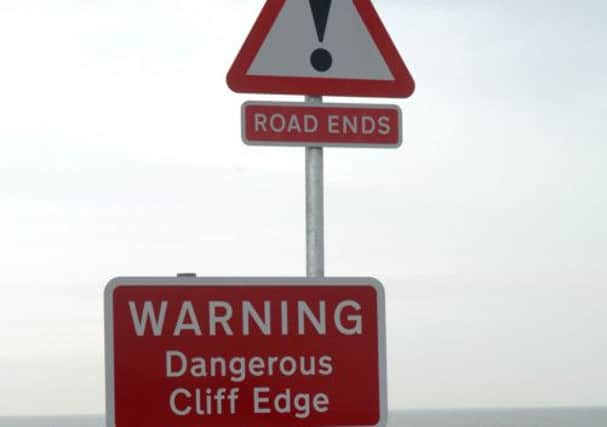Neil McNicholas: Beware the signs of an information overload


The focal point for communicating day-to-day information was the main notice board on the wall outside the refectory, but at some point I became aware that I was missing bits and pieces of other information I subsequently found had been posted on other notice boards I didn’t even know existed.
One day I decided to do a count and, almost unbelievably, discovered there were at least 25 different notice boards scattered throughout the complex of college buildings making it extremely difficult to keep tabs on every one of these and, as a result, it was all too easy to miss things you were supposed to know about.
Advertisement
Hide AdAdvertisement
Hide AdWe are living in an age of unparalleled social communication. It was a huge step forward when William Caxton’s printing press replaced the need for a room full of hastily scribbling scribes. Even greater steps were taken with Marconi’s work on radio signals, Alexander Graham Bell’s invention of the telephone, and John Logie Baird’s development of the television. The march goes on with today’s marvels of telecommunication and our total dependence on satellite technology and the world wide web – not to mention electricity.
One of the consequences of living in an age so dependent on communication is that we are constantly bombarded by information, up to and possibly even beyond saturation point.
Imagine for a moment, if you would, a typical high street in Victorian times. With no electricity, there would be no illuminated shop fronts, no neon signs, no LCD displays, nothing (or at least very little) demanding your attention or aggressively vying for your business and your money. There might be one or two painted signs on the sides of buildings advertising cigarettes, or medicines, or cleaning materials, and discreet notices above shop windows – “Brown’s the Baker”, “Jones the Butcher” – complemented by a small display of goods in each window.
By contrast ours is an age of information technology, we have never been so surrounded by information. It comes at us constantly and from all directions: buy this, buy that; do this, do that; come here, go there, don’t go there; look at this, look at that. The skill we therefore have to develop is of differentiating between the important and the unimportant, the essential and the non-essential.
Advertisement
Hide AdAdvertisement
Hide AdAdvertisers, for example, would like us to consider everything they place before us as being vitally important – that’s what their industry relies on. Personally they are wasting their time with me, I tend to ignore advertising other than occasionally being entertained by particularly clever or amusing adverts on TV, but I certainly don’t go rushing out to buy whatever they are trying to sell. On the other hand there are some very important pieces of information that we ignore at our peril: “danger: high voltage”, “warning: cliff edge”, “mine field: do not enter”, and a few less perilous but nonetheless important notices like: “wet paint”, “no trespassing”, “no parking”, and “ladies” or “gents”.
Surrounded by – indeed bombarded as we are by – so many notices, advertisements, posters, warnings, and various and sundry sources of information both physical and electronic, how do we make sure we don’t tune out the things we need to know? How do we make sure that in instantly processing a dozen street signs in front of us, we don’t miss the one that says: “one way street – no entry”? When we walk into the supermarket, how do we tune out the blizzard of notices urging us to buy everything in sight, but make sure we see the one that says “caution – wet floor”?
I have found it necessary to have signs on my church door asking people to switch off their mobile phones in church, but they don’t because the signs never even register. I have tried putting those “caution – wet floor” signs in my church when the tiled floor was wet in the rain and far from taking any notice, someone actually tripped over one of them. I’m reminded of a line from an episode of the Goon Show. They were on board HMS Victory and Neddy says: “There was a notice on the deck saying ‘Nelson fell here’ – I’m not surprised, I tripped over it myself!”
It’s actually a little worrying how much people may be putting themselves at risk by not reading signs and not being more observant. Are we actually becoming immune to the information around us? Is there so much of it that it has become ordinary, it doesn’t catch our eye anymore, it’s just part of the background and we take no notice of it? Well that’s okay if it’s just wet paint we sit on – that’s just embarrassing, but what about the cliff edge or the mine field?
*Father Neil McNicholas is a parish priest in Middlesbrough.